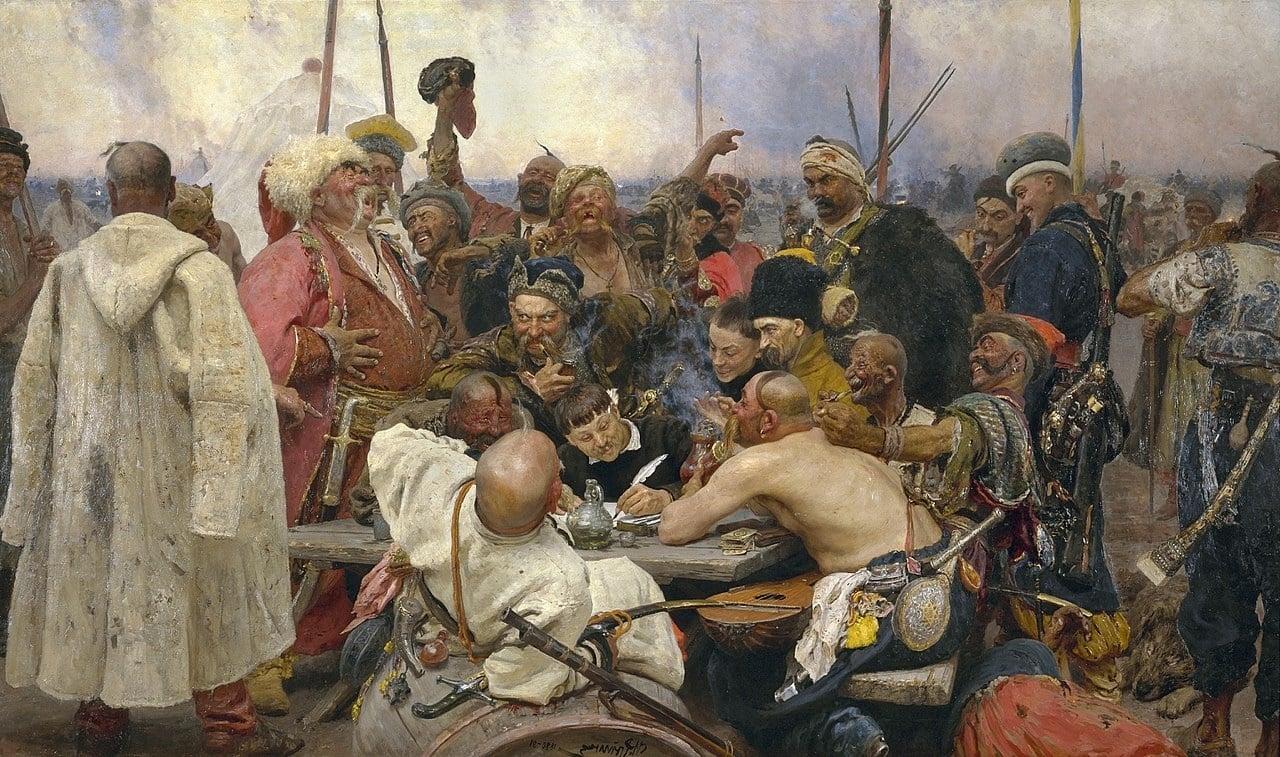A lot of people are just… not so bright. I remember seeing the video of all those trump supporters rocking out to “killing in the name of” by rage against the machine. Waving a thin blue line and american flag around with the lyrics blasting in the background.
Its the same with that new game Helldivers 2. Zero awareness.
I think this person means non partisan, because Metal Gear Solid is filled with political intrigue.
I kinda assumed people understood the messages behind Battlefield 1, Death Stranding, and Helldivers 2, lol. Most of the messages are telegraphed pretty clearly.
aesthetics. people will perceive the aesthetics more than anything else.
startship troopers is a good example: it satirizes fascism but has the aesthetics of fascism, so thats what people perceive.
the boys was the same when conservatives liked homelander. he is the good looking blue eyed aryan with an epic powerful portrayal and those are usually the heroes.
If you liked the guy who murders a load of civilians in like the second episode then I don’t think you can pretend it’s because he’s handsome!
the ‘good guys’ go in murderous rampages all the time in movies. its just usually framed as a good thing. ‘oh those they killed were evil!’, ‘oh the city they destroyed was for the greater good!’
real life isnt so black and white but they do that same framing irl with varying levels of success.
Neat stuff.
That part’s wild to me, when people are like “This villain in your story seems to have said and done bad things? So that means you agree with them, yes?” No! Of course not! It’s the literal villain in the story, man!
But there is no utilitarian point of art. It exists to express ideas and to tell truth. I think maybe a lot of people get upset because from their point of view, they are paying money, and they have this relationship where it’s like “If it’s not giving me what I wanted out of this transaction, then it’s bad.”
To be honest, “If it’s not giving me what I wanted out of this transaction, then it’s bad.” is a heuristic that works well for most things we buy. If I buy candy and it doesn’t taste good, it’s bad. If I buy a car and it breaks down, it’s bad.
I think the real problem is that some people see games as a product and others see it as an art piece. Some games fail at being either, some succeed at both.
A thread of the problem is likely the publisher/developer conflict of interest. When the two can’t come to an agreement, the end result usually fails horribly in both aspects.
I hate those people who take content for validation. If I have a nazi in my story I am not, myself, also a nazi.
I see a Helldiver I up vote.
For Liberty!
But on a serious note, something as obvious as “Managed Democracy” and quitting your job by signing up for “Early Biovat Reprocessing” and the characters literally saying things like “HELLDIVERS NEVER DIE!” Before being obliterated by a 380? It’s satire. Satire is funny. Like hahaha look at stupid Facist regime, I’ll role play along to get into the mood of the game because the idea is so fucking dumb it’s funny with amazing gameplay.
It’s willful ignorance at some point. I don’t think media literacy has much to do with it. It’s simply listening for what they want to hear, then ignoring the rest, just as real facists desire.
It’s more that when the writing is bad something is perceived as “political”, as the insert of whatever political messaging is being used comes out of nowhere and smacks the player like a cudgel. That’s what most gamers have a problem with, obviously there’s a loud minority that rage about stupid shit like Jesse Faden being too masculine. But that’s not what most people are talking about.
Games need to tackle these issues head on and fully integrate them into the world, not just tack on preachy dialog that doesn’t make sense within the wider game world.
FF16 is blatantly about slavery and no one really complained, it’s not exactly peak fiction, but they at least had everything contained within the world. FF7 is the same but with fossil fuels and much better writing.
New Vegas is the best example, it’s simply written well and gives the player agency.
Death Stranding did a great job of both integrating it’s themes directly into the world, and also tackling them head on without any remorse.
Helldivers is so ludicrously full on and absolutely dripping with it’s pro fascist ideology that everyone knows what they’re getting into from the intro video, and then the game starts adding texture and “are we the baddies” energy straight away.
Fucking Disco Elysium is near universally praised by the wider gaming audience, and I don’t even think I need to explain how that one is political.
It’s the same reason why most ideologically driven media is cringe as fuck. Christian media being a prime example, it’s contrived slop that doesn’t make sense within its own story. Like God’s Not Dead and it’s illogical legal system built on feels and Shapiro logic.
Who remembers the weird pro-life Doctor Who episode? That was bizarre and out of place. The characters stopped acting like themselves for the sake of whatever message it wanted to get across. It just felt really out of place.
The Last of Us Part 2, to label the most controversial example, had periods of good and bad writing, but focusing in on the “violence bad” part of it’s messaging, it completely missed the mark. Giving the characters names that they shout was just hilarious, and having Ellie repeatedly kill dogs whilst Abbie pets them was just so hamfisted. Then making the gameplay violent and fun which just divorced it further.
TLDR:
GamersPeople love politics invideo gamesmedia, they hate hamfisted preaching invideo gamesmedia. Especially when it doesn’t make sense in the crafted worldThe drama with helldivers was because fascists saw the over the top campy depiction of fascism and unironically agreed with it. They had no idea they were the ones being lampooned. You should look at the reactions when they found out the devs were actually not fascists. They were distraught.
Please could you provide some examples? I’ve legitimately never seen someone upset at the devs for not literally being fascists.
If I have to go out of my way to find this, I’m assuming it falls under the “loud” minority group. I’m sure these people exist, but it’d surprise me if they made up a significant amount of the over 12 million players.
Edit: Had a further look, there seems to be more people complaining about people taking it literally than people actually taking it literally. I did find like 3 Reddit posts, but all had 0 upvotes and like 30 comments telling them they’re wrong and stupid
Specifically starship troopers, but you know what kickstarted that discussion again. Also a bunch of Twitter discourse. Reddit is generally left adjacent. You won’t find too much fash shit there.
Okay, I’m all for good, complete education, but blaming people not understanding media on “too much STEM” is a bit ridiculous.
I dunno. Math asks me to just accept it’s normal to have 60 watermelons and is trying move bulk orders of melons on a regular car. The goal is to figure out the problem and not accept that the person who is a wholesale watermelon dealer in denial is commiting tax evasion.
Or to discover that the melon seller has a regular job in ag and gets a bunch of melons on the side from the field and sells the harvest at cost to make up the part of their paycheck that was paid in perishable food.
Should we shame the seller for breaking the law or sympathize for being forced into that situation? People don’t have the energy to care; they just came for a maths question.
Sorry, dude, what you said must have been very interesting, but at some point I just stopped reading to optimize a watermelon workflow instead. Weird.
I don’t know how i got here, but I seem to have purchased 7 watermelons.
I wrote a melon API to facilitate the melon management and shipping
but… this is not the math you see at STEM, this is the math you see at high school at best. There’s no deeper meaning in actual STEM math problems, they are way too abstract or specific. There’s no watermelons, it’s just some a, b, n1, nk… maybe some physics formulas that apply to velocity, mass… I read 0 problems in my uni math and physics courses where they used real world examples.
I see your point but that’s for high schoolers, not STEM students or alumnus.
It’s weird. I credit my scientific education with waking me up to questioning stuff. Like when you learn about how we know stuff, the limits of proof (e.g. can’t prove empiricism is “true” it just works extremely well for certain things), how hard it is to wrangle stuff into scientific questions and so on the elephant in the room is how fucking impossible most questions are.
Then you get thinking about how untested most of society is, how many different ways there are to interpret things, how unknowable the “goodness” of your preferences is and so on.
Yet, in the same cohort as me there were a lot of people coming out extremely certain of their own worldview and blindly faithful in technocrats and the mystical power of throwing data at stuff to solve enormous problems. Like we are anywhere near being able to calculate out a human society.
So idk, I think it’s less stem vs not stem and education quality and kinds of people/where they’re at in life. You could probably go through a lit crit course and come out blinkered too, being able to do lit crit doesn’t guarantee you’d have good opinions.
This is what bothered me in the original discussion, making it seem like being in STEM somehow doesn’t prepare you at all for critical thinking in general. On the contrary, I believe too there are people who develop it in part because of the S in there. It’s not necessary, but it’s an important tool.
Hopefully people don’t need a college degree in literature to understand basic subtext. We ask kindergarteners to do that with Dr Seuss.
Hopefully people don’t need a college degree in literature to understand basic subtext.
I think it’s about learning that it’s worth doing more than anything else.
I think this explains at least part of the phenomenon…
Don’t go to the article, it’s click bait garbage
I feel like it also has to do with lots of games featuring elements of (or full-blown) violence as part of their regular gameplay loop.
Yeah, in Helldivers 2, you’re committing genocide for insidious political reasons. But in Pokémon, you’re committing genocide, because you’re a ten year old and your neighbor gifted you a pet.Normally, the genocide part would be the very obvious red flag for something political going on. Instead, you need to be aware of why precisely you’re doing the genocide this time around.
Such genocide elements are usually also paired with fun gameplay (because violence is easy to translate into gameplay), and with a terrible story, so it’s understandable that people would skip all the story elements.
Jeez, I wish I could downvote you twice.
Conflating Pokemon and genocide really reduces the value of genocide. That it might be a tongue in cheek accusation towards our livestock and animal treatments … but genocide.
Like calling everyone Hitler and a nazi. Or groomer or…
I’m pretty sure it would be impossible to play a game like Spec Ops: The Line or Bioshock and miss the political message
People watch star trek and listen to fortunate son and miss the message in both of those pieces of art so I’m pretty sure someone would miss the political message in just about anything.
…and Starship Troopers, and every song by Rage Against the Machine…
Would you like to know more (examples of people missing the point)?

Does anyone really listen to RATM anymore? Tom Morello is a multimillionaire who hordes money instead of giving charity. Hes a hypocrite and a sell-out.
Well, you’re a dumb conservative. Of course no one in your circle listens to Rage Against the Machine.
Music and film don’t demand that you engage with them in the same way as video games. There are some games where you literally cannot play them without engaging with their narrative and message. Spec Ops: The Line is a good example of this. It actively pushes back against the player’s natural inclination to play it like a modern military shooter and not absorb the message.
I think you’re severely overestimating the average intelligence of the population.
It’s actually very possible to miss the message of Bioshock. Andrew Ryan built the perfect city and Atlas ruined it. Andrew Ryan cast him out, but Atlas brought the player character as his final ultimate weapon. You eventually rebel, saving the capitalist Utopia.
I have seen people who abided by this interpretation. Any art with any level of subtlety can be misinterpreted. It’s inherently subjective and depends on the viewer’s personal biases.
Capitalist utopia? Isn’t the whole point that it’s a Libertarian utopia?
Are you unfamiliar with capitalism as a theory? Or Ayn Rand? Yes, capitalist utopia. That’s the entire libertarian ethos. Libertarianism is a political framework for governance, pure capitalism is its economic policy.
Don’t get me wrong, the only Libertarianism I’ve ever known is intertwined with Capitalism. But they aren’t the same thing, and I always read BioShock as being a take on Libertarianism specifically.
Bioshock is most specifically about Randian objectivism, which promotes a version of extreme laissez-faire capitalism, not libertarianism in general.
And I think that’s the most economic philosophy buzzwords I’ve put in a sentence before.
I dunno how you could miss it in Spec Ops, that game is extremely blatant with messaging. I recently patient gamered it and was rather unimpressed. Bioshock still holds up though.
IMO it was a mistake to patient gamer Spec Ops. The whole point was that it was a pushback against the rhetoric of the US military and simultaneously a critique of Call of Duty: Modern Warfare (and knockoffs thereof), which had just exploded in popularity. By not playing it when the things it was critiquing were in the zeitgeist, you don’t really get the same experience. Plus, the marketing for the game deliberately hid the fact that it was intended as a critique; it was marketed as yet another modern military shooter.
I think you can patient gamer it but it only works if you’re heavily familiar with that time.
I was really into COD4 and grew up during the Bush administration so I knew exactly what Spec Ops was critiquing. If you don’t have that experience though I agree it does not land.
What I didn’t like was the blunt messaging. I was expecting something a little deeper or more subtle than what I got. As a game, the clunky movement/cover system, simple enemy AI, and guns that just didn’t feel great hampered the experience. It’s very linear and there are forced choices (eg white phosphorus) that give you control but no choice but to be evil. The graphics are lackluster compared to its contemporaries, but I did enjoy the soundtrack at times. I really got into it with a few of those songs. Unfortunately that only happened a few times during the weekend I beat it in. It was okay, but I was expecting a lot more based on what people said about it.
I was expecting something a little deeper or more subtle than what I got.
That’s the problem when these things gain reputations. The reputation builds it up to be more than the piece of art can deliver.
Now imagine playing it when it was new and you weren’t “expecting” anything but a military shooter. It would still be just as blunt, but it landed back then far more effectively than when you go in knowing the reputation the game has built in the many years that followed.
Maybe because most people experience the art? and don’t feel the need to inflate their ego by thinking their interpretation or experience is the best way to interpret something?
this feels like a bunch of nerds sitting around complaining that gamers miss stuff, while not understanding that most gamers don’t miss it. they just experience it and don’t feel the need to externalize it.
Imo its the other way around. If you experience art, you think about it and try to get a meaning out of it (even if there is none, as in some modern art pieces). But if you just play a game you are not getting the art-aspect of it, you just enjoy it for the gameplay or maybe even the story but not for the deeper meaning.
No, art is not for thinking. Books are for thinking. Art is for experiencing.
Art might not be about thinking while you are experiencing it, but it most definitely is about thinking about the experience afterwards, as much as experiencing it in the first place.
Not to mention that books are often art.
Has anyone actually seen anyone actually complain about having politics in games, and not just obnoxious politics, like Specs Ops where they force you to kill civilians and then act like your the bad guy because you wanted to see the content you paid for? If you dont give us a choice to be good, and if you’re super preachy about it, then its just bad writing.
Look at New Vegas, plenty of politics, but you get to make choices, and its not preachy at all. Then look at the Last of Us 2, where they force you to kill a dog the other character petted, and it comes off as blatant emotional manipulation. Which game is widely considered a masterpeice?
This misses the point of spec ops the line
What, war is bad and glorifying war is bad? The point has been made, no one missed it. Its just wasnt worth mentioning.
You’re doing the thing in the post.
Has anyone actually seen anyone actually complain about having politics in games
Yes. Under this post, too.
I even remember people complaining about re-releases that had disclaimers that the game has racially insensitive enemies.
People will complain about anything.
Where under this post? Cuz I dont see it.
Gotta look for the downvoted ones, lol
One example…
People play games for escapism, not to be reminded of politics. Not every story needs deep political roots, people just want to have fun and forget about real world bullshit.
Tbh, I can see that. I hop in CS and its political, but I play it for escapism.
Spec Ops actually did have choices where you could be good (or at least less bad), but ironically people missed them because they didn’t think being good would work.
For example, at one point you’re being harassed by an angry mob of locals. A lot of players simply shot them because a lifetime of experience with shooters told them that no other input would be recognized. But in actuality, if you fired warning shots at the ground or over their heads the civilians would flee without incident.
I didnt know that. After the forced willie pete bit, I thought all the other bits were forced too. Specs op unintentionally set a rule “if theres a choice, youll be forced to take the evil one” which made the entire thing feel obnoxious.
I think you’re actually engaging with it a bit shallowly. You are the one who invented the rule and a different framing is exploring how, if games seem to put us in situations where we must do horrible things to advance even a couple of times, we take that as a rule instead of risking losing to find other ways.
Which is a fairly glaring indictment of the whole military shooter genre which is all about “hard men and hard choices” that completely dehumanise the factions you’re in opposition to.
A lot of gamers thought it was forced. Its just bad communication with the player.
Military shooter games glorify war and shallowly reward horrible behaviour. Spec ops does it differently.
Majority of people: do horrible thing
Some people: experimental and find heroic thing is rewarded.
Discussion possible, why did the majority do that? could we talk about horrible and uncreative design patterns in the genre of military shooters? How media portrayals of war train us not to look for peaceful solutions? Whether this feeds into how we view American imperial wars?
you: no spec ops bad video game because I didn’t do the good option.
People did experiment, in the first scene with the wp. That experiment told them that the game would force you to make evil decisions to continue playing. I saw that narratively there was a good option, but the game told me that that option wasnt available in the WP scene.
you get that this wouldn’t work as a critique if it was obvious you could make different choices right? Then it wouldn’t make the player complicit. If you’re not complicit it’s just a game saying “military shooters could be different” which is a nothing statement.
Like how games with a “get the information (evil)” and “get the information (good)” button aren’t offering real moral choices. Or how deus ex would lose all impact if the “here’s a gun, go kill these people” starting mission tempting you with a rocket launcher popped up a “you might change sides in the future” warning.
By involving you, leading you just like any other military shooter for a bit then cutting you loose is what creates the critique. You compare notes after playing and someone points out something and you go “huh, why didn’t I try that?”. It’s not condemning you for not trying that, it’s asking you if you’re happy with a genre which trains you to never to try it.
People play games for escapism, not to be reminded of politics. Not every story needs deep political roots, people just want to have fun and forget about real world bullshit.
That’s why my favorite book is Moby Dick. No froo-froo symbolism, just a good, simple tale about a man who hates an animal.
It’s not a very popular opinion it seems but I agree, I rather like a bit of mindless escapism sometimes, not everything has to teach me a lesson, sometimes things can be just fun. Not that we can’t have both, of course.
And that also doesn’t mean you can discredit the message of a game just because you don’t like it or want to engage in it. But so many people play a game with a strong political message, and then complain constantly how it’s ruined by it. Okay so don’t play it play something else.
















